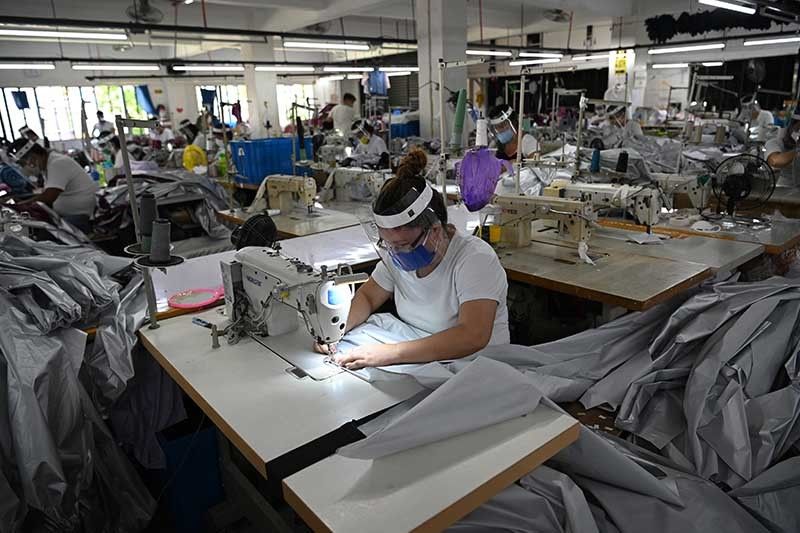After sharp contraction, Philippine factory output rebounds in September

MANILA, Philippines — After a sharp decline, local factories returned to expansion mode in September as quarantine measures were loosened in Metro Manila.
A monthly survey of around 400 companies showed the country’s purchasing managers’ index (PMI), bounced back to 50.9 in September from 46.4 in the previous month, IHS Markit reported Friday.
While the British information provider considered the uptick marginal as it landed slightly above the 50-mark separating growth from a slump, it was the strongest since March.
"After a tough trading period in August, manufacturers in the Philippines welcomed the relaxation of some virus-related restrictions,” said Shreeya Patel, an economist at IHS Markit, in a commentary.
“A number of factories and businesses resumed their operations, however, the domestic and international demand environment remained challenging. Job shedding persisted, but anecdotal evidence highlighted that this was mostly voluntary,” Patel added.
After a revert to disruptive lockdown in August, this was a positive development for PMI, a measure of factory output.
According to companies polled, there was ‘general reluctance’ for clients to spend amid pandemic curbs. Exports stagnated after an abrupt drop in August.
However, IHS Markit noted firms resumed stockpiling this month since they anticipate greater demand.
Production volumes continued their sixth month of decline as firms bemoaned ensuing pandemic restrictions in the country set back production. Still, the decline was softer compared to that of August.
Employment in factories remains concerning as it has declined in 20 out of the last 21 months. Workers fell prey to a combination of pandemic restrictions, feeble consumer demand, and voluntary resignation, which left firms with low staff levels.
“Global shortages have also weighed on the sector with prices increasing sharply. Unfortunately, firms will have to endure the disruption as supply pressures show no signs of slowing,” IHS Markit’s Patel said.
Meanwhile, lingering port congestion stayed in September as disruptions in the global supply chain remained. Container shortages, on top of a scarcity of raw materials, costly shipping fees, and containers were among the reasons cited by companies why prices of goods inched up.
Moving forward, companies were optimistic about their prospects as global vaccination efforts improved, crucial to ease mobility curbs and pandemic restrictions.
"On a positive note, the vaccination effort supported optimism, and with the government securing more doses, the Philippines looks committed to inoculating the population," Patel said.
- Latest
- Trending






























